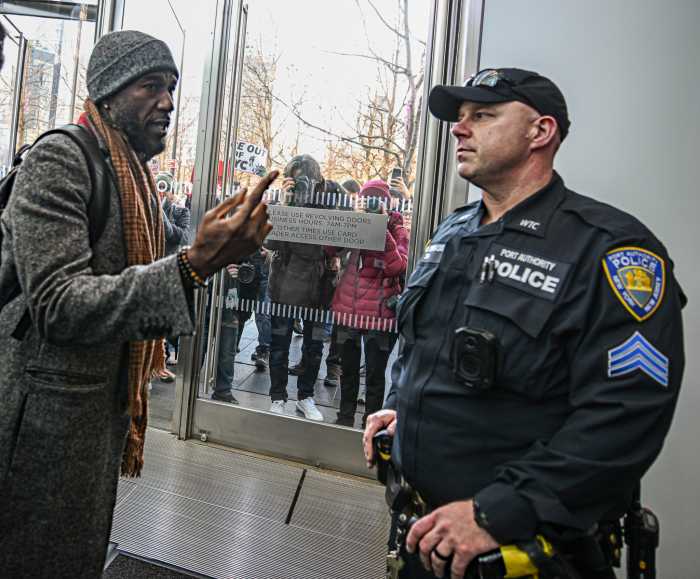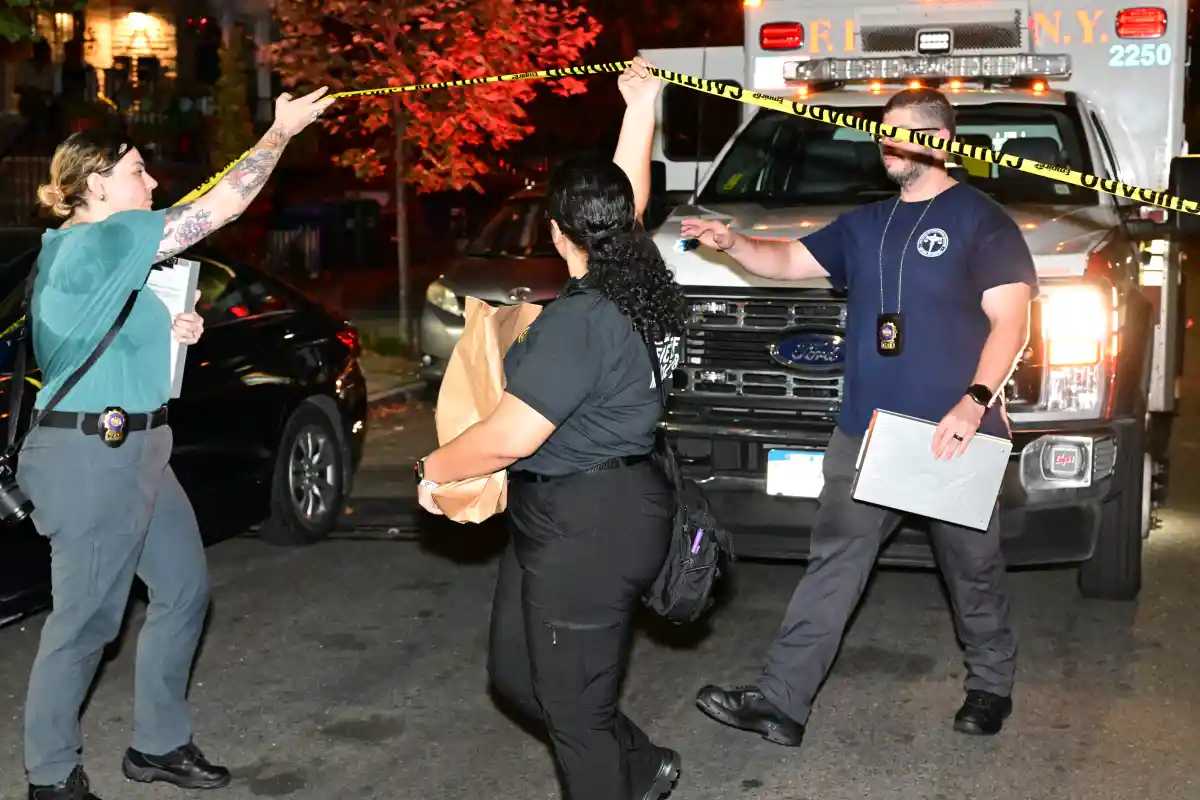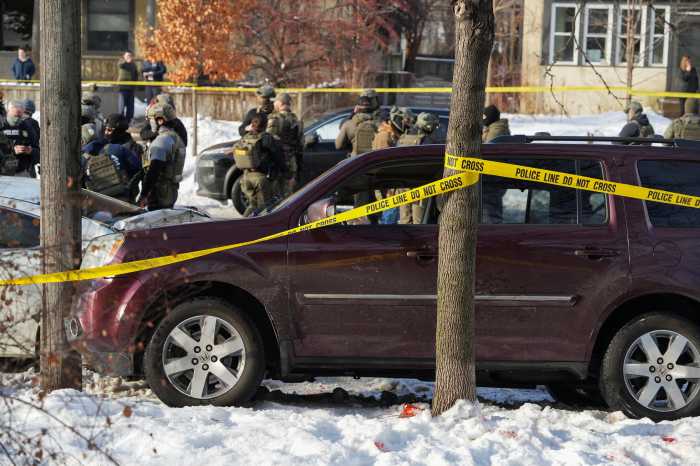In the three years since Eric Garner died after being placed in a chokehold from a police officer on Staten Island, the Black Lives Matter movement has gained national attention and influence.
Garner’s death — captured on video on July 17, 2014 — helped spark a nationwide discussion on police force and tactics. He was being arrested for allegedly selling loose cigarettes.
Garner’s dying words of “I can’t breathe” became a rallying cry many protesters chant to this day. His death has helped forge both political change (the state attorney general now has the ability to take over any investigation where an unarmed civilian is killed by police) and demonstrated the importance of catching incidents on film (the NYPD has rolled out a body camera pilot program).
Here’s an update on the people involved in Garner’s death, the investigation and Garner’s family.
Daniel Pantaleo
The cop who stood accused of placing Garner in a chokehold, which is against the NYPD’s policy, isn’t out of the woods. While Pantaleo was not indicted in Staten Island, federal civil rights prosecutors recommended in 2018 that he face charges in the case, the New York Times reported on April 20. He remains on modified duty and has yet to face departmental review, police said.
Senior Justice Department officials, however, may not go forward with the case despite the recommendations, the Times reported, because they fear they may not win.
On March 21, 2017, ThinkProgress published Daniel Pantaleo’s leaked disciplinary records, showing the officer had 14 complaints filed against him with the Civilian Complaint Review Board, four of which were substantiated. The substantiated allegations, according to the news site, included an abusive vehicle stop in 2011 and an abusive stop and frisk in 2012.
The next day, March 22, NYPD Commissioner James O’Neill called the leak of the documents “improper.” Larry Byrne, deputy commissioner for legal matters for the department, said the NYPD was working with the CCRB to identify who leaked the documents.
“The leak was totally improper, was illegal, it needs to be investigated,” Byrne said.
The leaked documents bypassed an ongoing legal battle concerning police records. In 2015, the Legal Aid Society filed a lawsuit seeking access to those records under the state’s Freedom of Information Act, the New York Times reported.
A Manhattan judge ordered the release of Pantaleo’s summery of misconduct findings, but the city appealed the decision and an appeals court ruled in March that the documents could not be released, the Daily News reported.
Dan Donovan
The former Staten Island district attorney moved on from his post in May 2015 when he was elected to Congress following a special election. He took over Michael Grimm’s seat after Grimm was forced to resign following a federal investigation into his campaign finances and businesses. Grimm was later sentenced to eight months in prison for felony tax evasion.
Donovan, who grew up on Staten Island and spent 12 years as the DA, convened a special grand jury that voted not to indict Pantaleo in Garner’s death.
The Garner family
Garner’s widow, Esaw Garner, who has lit remembrance candles on the anniversaries of his death, has said the stalls in the federal investigation have left her tired, according to a New York Times profile.
Garner’s mother, Gwen Carr, has remained politically active in the years since her son’s death. Carr was a vocal supporter of Gov. Andrew Cuomo’s July 2015 executive order that gave the state attorney general the ability to take over any case in which a law enforcement officer kills an unarmed civilian.
In June 2017, the Garner family expressed frustration with the Justice Department’s civil rights investigation after the agency said it was continuing to consider possible charges but not ready to indict anyone in the case: “Once again we’re going to be playing the waiting game,” Carr said.
Ramsey Orta
Garner’s death was one of the first to be caught on video and uploaded on the internet for all to see. The footage, shot by Ramsey Orta, quickly went viral, and set the case apart from other high-profile deaths where police and witness accounts had to be dissected.
Since then, Orta has faced legal trouble and reportedly argued that he became a target for cops on Staten Island. In July 2016, he pleaded guilty to drugs and weapons charges.
State charges
A special grand jury was convened in Staten Island to examine the evidence, but in December 2014, it ultimately decided not to indict Pantaleo. The panel deliberated for nine weeks, heard testimony from 50 witnesses and viewed 60 exhibits.
In February 2015, several attorneys, including a lawyer for the city’s public advocate, pressed to unseal the grand jury records in the case, arguing the minutes could help to reform the criminal justice system. But in March 2015, a Staten Island judge ruled he wouldn’t release the grand jury minutes, and about four months later a panel of appellate court judges voted to uphold that decision.
Federal case
Federal prosecutors started presenting evidence to a grand jury in February 2016 in an effort to determine whether or not Garner’s civil rights were violated.
In October 2016, a new team at the Justice Department was assigned to the investigation into Garner’s death, according to a New York Times report. The new team of agents could potentially jump-start the case that has been stalled up until now, officials told the Times.
Federal prosecutors and FBI officials were against charging Pantaleo, while the Civil Rights Division at the Justice Department argued the opposite, the paper reported. Recently, the FBI agents who have been investigating the case were replaced with agents from outside New York, and federal prosecutors in Brooklyn are no longer assigned to the case, according to the paper.
Now the case appears to lay in the hands of senior officials at the DOJ, who will determine whether to apply federal prosecutors’ recommendations to charge Pantaleo.
With Lauren Cook


































